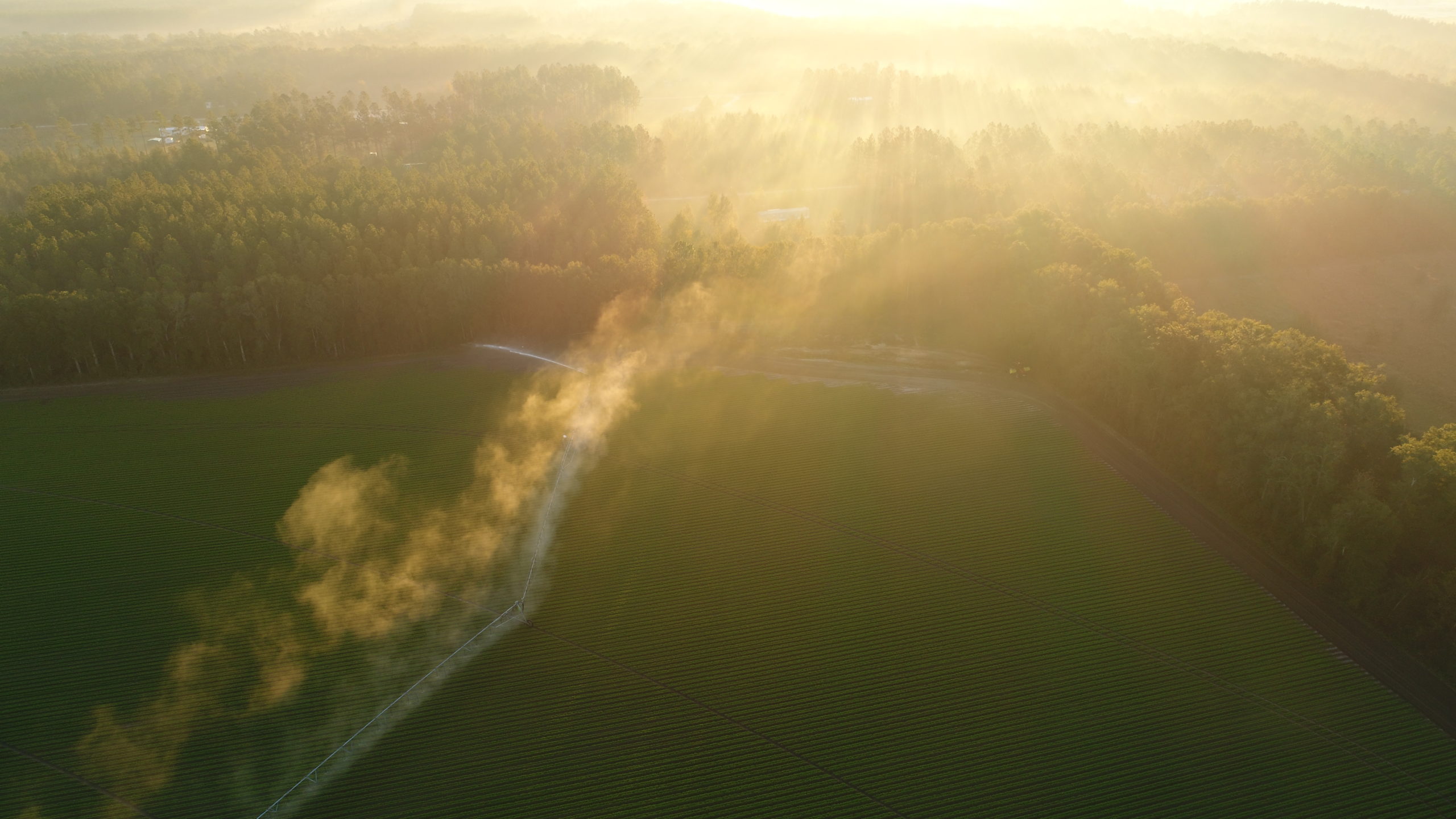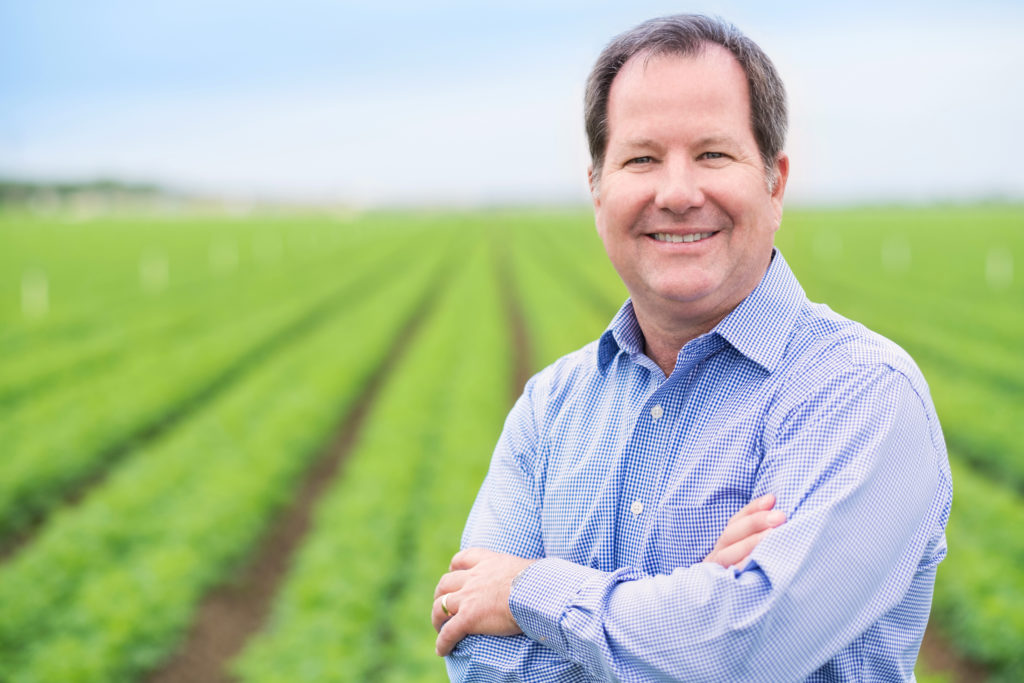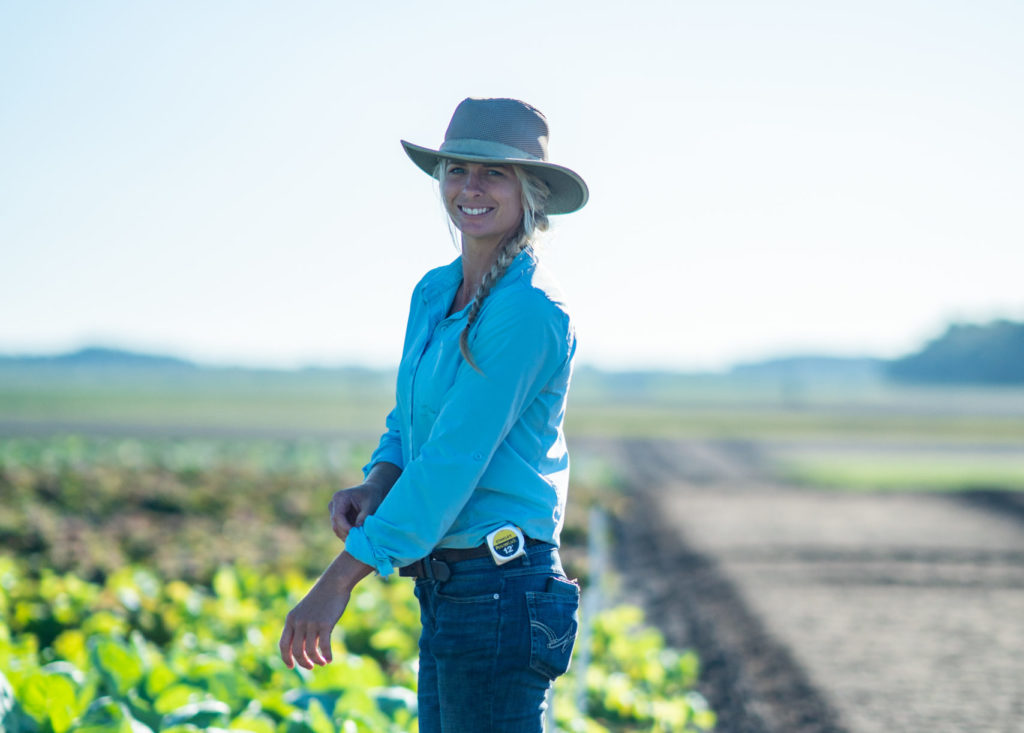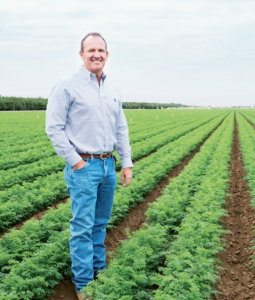
Nov 13, 2020
Pioneering work in organics pays off for Grimmway Farms
Growing interest in organic produce is helping Grimmway Farms expand sales. Positioning East Coast operations in the Southeast feeds rising demand. The Southeast expansion has also taught the carrot pioneer a thing or two about the challenges of growing organics in the Southeast.
Grimmway and its Cal-Organic Farms division, based in Bakersfield, California, offer more than 135 vegetables and fruits grown in seven states. Grimmway calls itself the nation’s largest producer of organic vegetables, with more than 50,000 certified acres and the world’s largest producer of carrots, growing more than 45,000 acres per year.

A pioneer in organics, Cal-Organic, which Grimmway acquired in 2001, was first organically certified in 1984. Grimmway and Cal-Organic’s product catalog includes more than 65 organic varieties grown seasonally throughout farming regions in California, Florida, Georgia, Oregon, Colorado, Washington and Arizona.
In 2015, the grower-packer-shipper headed east and began commercially growing conventional carrots in the Southeast, in the Cook County, Georgia, and Live Oak, Florida, areas. The addition followed years of experimenting with planting carrots in the South. In 2018, Grimmway fortified its regional presence by opening the Southeast Regional Packing Facility and Warehouse in Sparks, Georgia, off Interstate 75 between Valdosta, Georgia, and Tifton, Georgia. The move allowed Grimmway to ship conventional carrots and products from Georgia during the winter and spring.
As 2018 turned into 2019, the family-owned and operated company started exploring regional organic production. After expanding its southern carrot operations, Grimmway began distributing its Southeast organic crops commercially in the fall of 2019, not long after it purchased the facilities from Lake Park, Georgia-based Generation Farms. Generation Farms grew carrots, Vidalia sweet onions and other vegetables in north Florida and south Georgia.
The purchase did not include Generation Farms’ Vidalia onions growing, packing and shipping operations. Generation Farms was formed in 2013 through the merging of Lake Park’s Coggins Farm and Lyons, Georgia’s Stanley Farms, two legacy south Georgia growing operations.
The move into the Southeast is important because the West Coast and Northeast lead demand for organic produce in the U.S. The strategic location of Grimmway’s Southeast operations allows it to meet regional demand and provide logistical efficiencies to customers along the Eastern Seaboard.

“The Southeast provides access to greater acreage outside of California, which allows us to further develop our year-round carrot and organic vegetable programs,” said Eric Proffitt, senior vice president of sales and marketing. “The logistical efficiencies we achieve by reducing food miles for our East Coast and Southeast customers make the growing region especially valuable to our operations.”
Strategic positioning
The positioning in south Georgia also helps fulfill retail demand for local programs. “While expanding our regional operations provides value and shorter shipping routes for customers, it also connects shoppers with locally grown produce that aligns well with consumer preferences to support local farms,” said Proffitt. “Our productive land base and diverse processing facilities have allowed us to expand production near key East Coast markets. This diversification ensures adequate quality and supply.”
In addition to carrots, Grimmway grows a large variety organic leafy greens and vegetables, including arugula, bok choy, beets, butter lettuce, chard, cilantro, collard greens, daikon, dandelion, dill, fennel, kale, leeks, mustard greens, parsley, parsnips, radishes, rutabagas, spinach, turnips, broccoli, cauliflower, cabbage, baby carrots, rainbow baby carrots, celery, green beans, sweet corn, green onions, red, yellow and white onions and fingerling potatoes.
Grimmway grows carrots and more than 20 seasonal organic vegetables in Florida and Georgia. It grows in Bainbridge, Georgia, and grows and packs in Lake Park. Grimmway’s Live Oak and Madison, Florida, growing regions are close to the Georgia-Florida state line. Grimmway’s Florida ranches are embedded in a leading growing region on the east side of Florida’s panhandle. The region is renowned for its soil rich with nutrients and sandy texture, ideal for growing carrots. Though harvesting timing changes by commodity, the Florida and Georgia seasons typically begin in late fall and run through spring.
Entering the Southeast, Grimmway soon learned growing produce in the region is far different than in the West.
“Like our growing regions in California, the sandy soil of our Southeast farmland is ideal for cultivating organic carrots,” said company president Jeff Huckaby, who this year was named the Organic Farmer of the Year by the Organic Trade Association. “Unlike California, however, this region presents more frequent and unpredictable weather patterns with rain, wind, heat and humidity pressures throughout the year.”
Employing new crop methods is vital to farming in any region. Though organic farmers face common challenges across the county, the Southeast region and others present issues unique to the conditions of the area. Grimmway consults with and relies heavily on its regional growers across the country to match best practices. It relies heavily on the expertise of growers, who have farmed in the Southeast for generations.
Similar to Vidalia onions, which face bigger growing challenges in South Georgia than onions grown in other regions, carrots and other organic produce experience similar obstacles in the Southeast.
“Rain and humidity bring increased disease and insect pressure, which is challenging for organic farming since we’re limited to relying on natural pesticides and beneficial insects to protect our crops from unwanted pests,” said ranch manager Logan Petrey, a fourth-generation farmer recently appointed to serve on the National Organic Standards Board. “Managing our organic fertility can be challenging and costly due to sandy soil composition characteristic of farmland in Florida.”

Organic Standards Board.
“Farming seasonally comes with disadvantages,” Huckaby added. “However, we’re learning how to farm more efficiently in the Southeast and extend our growing seasons for different vegetables, which will ultimately allow us to recognize more efficiency and savings.”
Booming organic demand
Organic produce continues to see double-digit growth year after year. Grimmway has seen a long-term trend of the organic category growing faster than conventional. In July, organic sales represented almost 12% of total produce sales. Grimmway expects organic sales to only continue to rise as the price gap between conventional and organic produce narrows.

“In high-volume categories with smaller price gaps, such as carrots, organic sales account for more total commodity sales than in lower volume categories with larger price gaps,” Proffitt said.
While Southeast organic consumption in the past has lagged other regions, Grimmway also has experienced double-digit increases in year over year volume and sales for the region. It attributes most of this growth to an increase in grocery retail shopping during the COVID-19 pandemic and some to increased distribution of local, organic products. “We’ve been pleased with positive response from our East Coast customers on the quality and performance of our regional commodities,” said Proffitt.
In 2019, Grimmway celebrated 50 years. A category leader in carrots, Grimmway traces its roots to a Southern California roadside produce stand, which sold corn and other vegetables. Brothers Rod and Bob Grimm ran the operation in the early 1960s. Grimmway formally incorporated in 1969. In 1981, the Grimms relocated from Orange County, California, to Kern County, California. Business blossomed after moving to Bakersfield. Though Grimmway diversified its commodities and growing regions, its core product remains carrots. In the 1990s, Grimmway popularized baby carrots.
In 1998, the Grimms suffered a major loss when Rod Grimm, 51, died from cancer. Eight years later, in 2006, Bob Grimm, at 54 years of age, died of a heart attack.
Grimmway markets its products under the Grimmway Farms, Cal-Organic Farms and Bunny-Luv brands to retail, foodservice, frozen, industrial and ingredients customers. In California, harvesting occurs in six production regions: in the San Joaquin, Coachella, Cummings, Cuyama, Imperial and Antelope valleys. Grimmway also farms in Arizona and Washington.
Today, Grimmway is run by a leadership team led by Jeff Huckaby, president, and Eric Proffitt, senior vice president of sales and marketing, who have more than 50 years of combined experience at Grimmway Farms. The company continues to be family-owned.
“For more than 50 years, we’ve upheld the vision set by our founders while providing the best value, consistent quality and outstanding service to our partners who have been there since day one,” Huckaby said. “Grimmway is committed to creating a better tomorrow – in the way we eat, how we treat our natural resources and how we interact with each other.”






